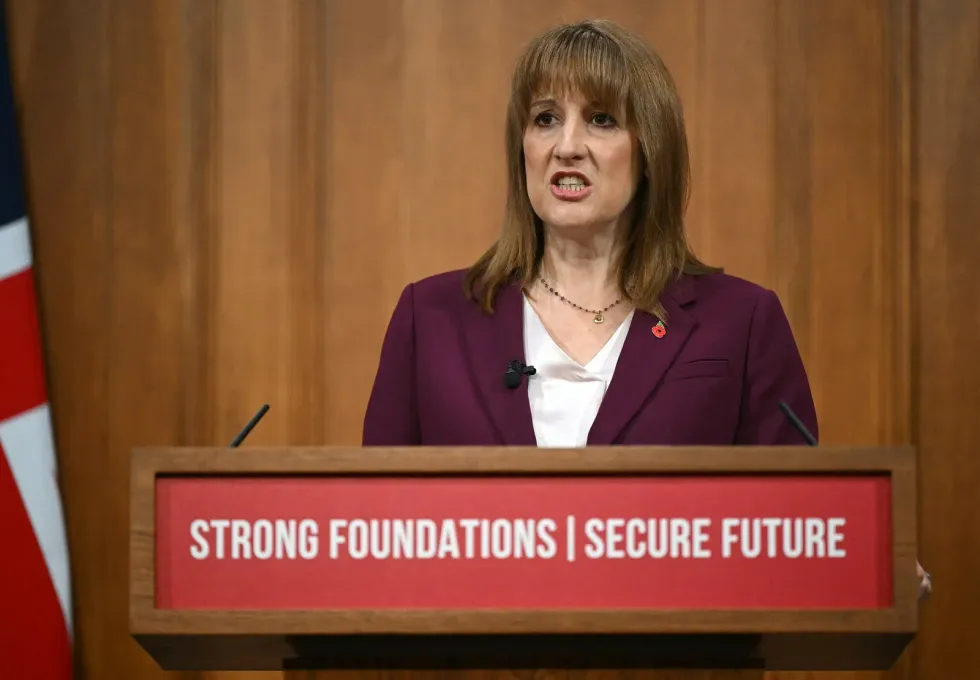Unemployment rose to 5 per cent in the three months to September, up from 4.8 per cent previously and marking the highest level since early 2021, when Covid restrictions were in place.
UK average regular earnings growth fell to 4.6 per cent in the three months to September and was 0.8 per cent higher after taking Consumer Prices Index (CPI) inflation into account, the Office for National Statistics (ONS) has said.
Separate HMRC data showed payroll employment dropped by 32,000 in October, mirroring a revised 32,000 fall in September.
The rate stood at 4.1 per cent when Labour took office last year.
Measures from Ms Reeves’s first budget took effect in April, including increases to minimum wage and employer national insurance, which dealt a blow to private sector hiring and investment confidence.
ONS director of economic statistics Liz McKeown said of the data: “Taken together these figures point to a weakening labour market.
“The number of people on payroll is falling, with revised tax data now showing falls in most of the last 12 month
“Meanwhile the unemployment rate is up in the latest quarter to a post pandemic high. The number of job vacancies, however, remains broadly unchanged.

“Wage growth in the private sector slowed further, but we continue to see stronger public sector pay growth, reflecting some pay rises being awarded earlier than they were last year.”
Private sector wage growth has slowed further, while public sector pay continues to rise, partly due to earlier-than-usual awards.
The cooling jobs market and easing wage pressures could strengthen the case for a Bank of England rate cut next month, provided inflation continues to retreat.
The data comes ahead of the chancellor’s second budget on November 26.
Responding to the latest unemployment figures, Work and Pensions Secretary Pat McFadden said: “Over 329,000 more people have moved into work this year already, but today’s figures are exactly why we’re stepping up our plan to get Britain working.
“We’ve introduced the most ambitious employment reforms in a generation to modernise Jobcentres, expand youth hubs and tackle ill-health through stronger partnerships with employers.
“And this week we’re going further by launching an independent investigation that will bolster our drive to ensure all young people are earning or learning.
“We’re backing businesses to grow and create jobs by cutting red tape, signing trade deals and securing hundreds of billions in investment, which helped make the UK the fastest growing economy in the G7 in the first half of this year.”
At a Downing Street event last week, Ms Reeves laid the groundwork for a tough fiscal package, expected to include measures that may only be partially balanced by concessions aimed at maintaining support among Labour MPs.
She faces a projected £30billion shortfall in the public finances.
The chancellor has indicated a departure from Labour’s manifesto pledge not to raise income tax, national insurance or VAT, citing changed economic circumstances.
Among the pressures she’s highlighted are Brexit and the fallout from the US trade war.
Despite the tightening outlook, one likely spending priority is scrapping the two-child benefit cap—a move the Child Poverty Action Group estimates could lift 350,000 children out of poverty.
LATEST DEVELOPMENTS
- How to get a free TV licence as BBC fee set to rise above £180
- State pension warning: Major change to push more than 100,000 over 60s into ‘absolute poverty’
- Ftse 100 hits new record high amid hopes of US shutdown deal

The Conservative Party has blamed Labour’s economic policies for the latest rise in unemployment.
Shadow work and pensions secretary Helen Whately said the UK had seen 13 consecutive months of rising joblessness, leaving “thousands of families without the security of a regular pay packet.”
She criticised Chancellor Rachel Reeves for “hiking up taxes on jobs,” burdening businesses with red tape, and eroding economic confidence.
Ms Whately warned that further tax rises expected in the upcoming Budget would worsen the situation, adding: “Only the Conservatives have the team and the plan to unleash businesses, grow the economy, cut waste, and get Britain working again.”
The Liberal Democrats called for the Government to reverse last year’s national insurance increase in response to rising unemployment.
Lib Dem Treasury spokeswoman Daisy Cooper MP said: “Surely the writing is on the wall now for the Chancellor’s jobs tax?
“Everyone except Rachel Reeves seems to have woken up to the fact that forcing small businesses to pay more in tax for giving people jobs would damage job opportunities. Now the proof is staring her in the face.
“The Government must reverse their damaging national insurance hike at the Budget, and commit to saving the small businesses who employ millions in Britain and are at risk of collapse, if they’re to have any hope of reversing today’s concerning trend.”
THIS IS A BREAKING NEWS STORY.. MORE TO FOLLOW
Reacting to the figures, Ben Harrison, Director of the Work Foundation at Lancaster University, a leading think tank for improving working lives in the UK said:
“As unemployment in the UK continues to creep upwards, today’s data underlines the importance of the Chancellor using the Autumn Budget to address the long-term labour market challenges that are holding back economic growth.
“There are now 1.79 million unemployed people in the UK. Although low by historical standards, 5.0 per cent is the highest level for over four years since the middle of the Covid-19 pandemic. Vacancies may have stopped falling, but are still 99,000 lower on the year.
The mix of low numbers of vacancies and rising unemployment is creating an increasingly competitive jobs market with 2.5 jobseekers per vacancy.”
Our Standards:
The GB News Editorial Charter







Follow